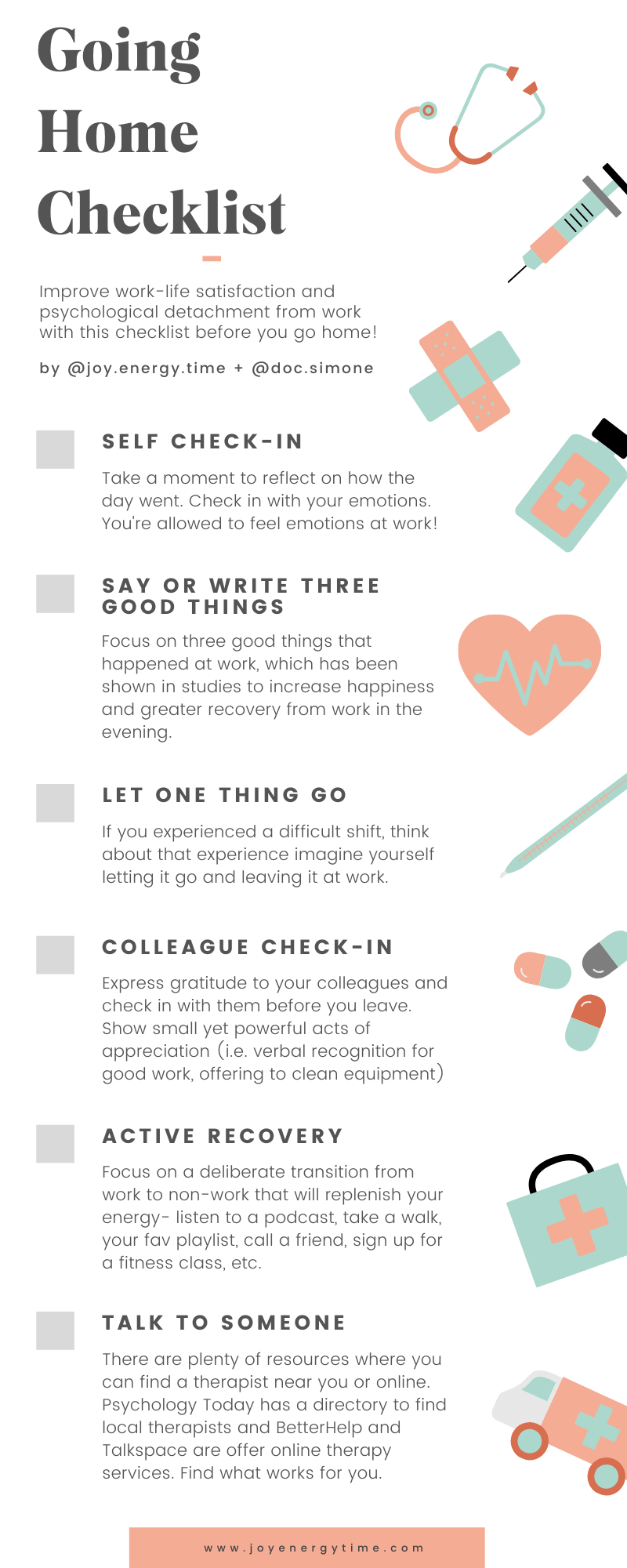Detachment Checklist for Healthcare Professionals
Share
Taking stressors from work home with you is no fun, to say the least. That’s why a Going Home Checklist is vital for your well-being!
WHY DETACHMENT IS SO IMPORTANT?

Before we look at that, let’s take a look at how burnout can interfere with your detachment from work. Burnout is positively associated with poor quality of sleep, nonrestorative sleep, not feeling refreshed upon awakening, sleepiness, and/or fatigue during the day.
- Poor psychological detachment from work can lead to high levels of need for recovery, fatigue, sleep problems.
- Full psychological detachment from work can lead to increased work-life satisfaction, positive affect, work engagement
Healthcare professionals deal with loads of different stressors, including stress from patients, documentation, management, conflict with coworkers, and so much more. If you leave work and you’re still attached to work because you’re thinking about your patients, an incident that happened earlier that week, a not-so-great interaction with your boss- it will negatively impact your ability to rest and recharge yourself.
THE GOING HOME CHECKLIST
This evidence-based checklist can help healthcare professionals transition from work more smoothly, increase work-life satisfaction, improve psychological detachment from work, improve well-being, and increase a sense of flourishing.

Credits: https://www.joyenergytime.com/going-home-checklist-for-healthcare-professionals/
A version of this story was originally published on Joy Energy Time




